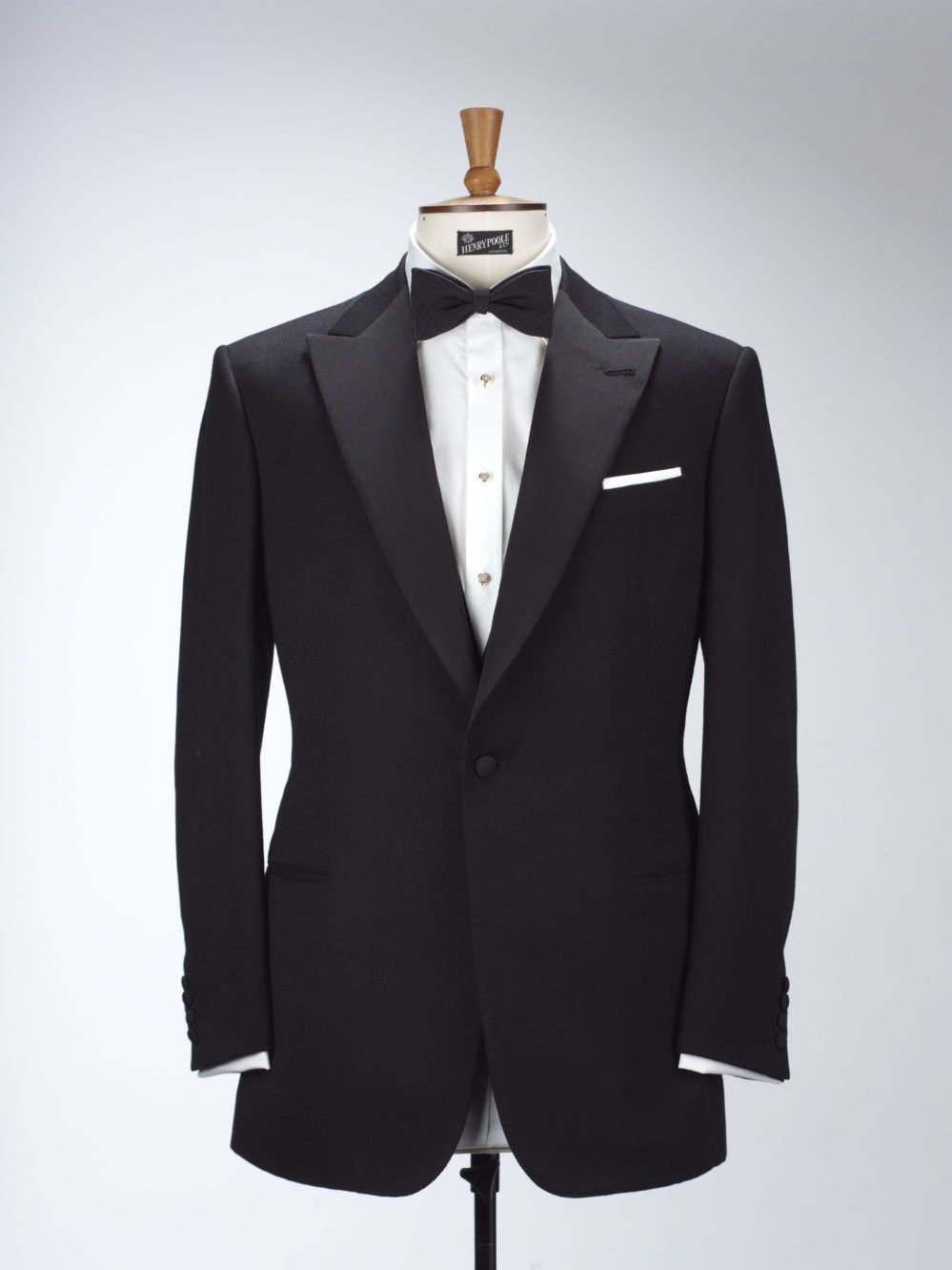Call us on +44 (0)20 7734 5985
The Henry Poole dinner jacket, in black or midnight blue, remains the universal standard for men’s eveningwear.
In 1865, the Prince of Wales and future King Edward VII (known to his family and friends as Bertie) asked his tailor and friend Henry Poole to cut a short coat he could wear at informal dinners at Sandringham. Henry Poole accordingly shortened the traditional tailcoat and presented the evening jacket to the Prince of Wales in celestial blue. There is no earlier reference to any similar garment in either the historic Henry Poole & Co. ledgers dating back to 1846, or in the surviving ledgers of any other tailor or period illustration. So the British dinner jacket or DJ was born.
The Americans christened the British DJ a ‘tuxedo’, following a story that circulated the Tuxedo Park Club, north of New York City. The story goes that the Prince of Wales visited in 1886 and his notorious roving eye fell upon Cora, the devastatingly gorgeous wife of James Brown Potter. This led to the couple being invited to dine and sleep at Sandringham. Potter, not knowing about royal protocol, asked his tailor, Henry Poole, what he should wear at an informal royal evening. Poole confidently answered that a short celestial blue evening coat would be appropriate.
Potter ordered the coat and then wore it on his return to New York, introducing it to the fashionable social scene in the Tuxedo Club. Unfortunately, no record of an American customer named James Potter survives in Henry Poole’s ledgers. However, the founding fathers of the Tuxedo Club, Messrs William Waldorf Astor, Robert Goelet, Ogden Mills and Pierre Lorillard, are all well documented Poole customers in the 1860s, when Bertie first ordered his prototype dinner jacket. It is therefore likely that these social peacocks copied the Prince of Wales and introduced the dinner jacket to New York society (and subsequently the Tuxedo Club) a full 20 years before the apocryphal Potter incident. Whatever the case, the tuxedo, or whatever else it is called around the world, began with Henry Poole.

